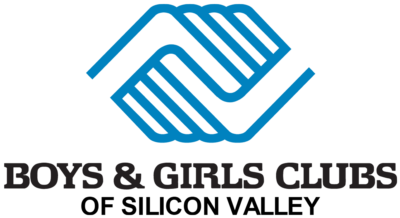Student Success: 5 Ways Parents & Caregivers Can Help
Every parent and caregiver wants their child to succeed in school, but academic success is more than just getting good grades. It’s about growing as a person, discovering new things and gaining essential life skills. While success looks different for every student, what matters most is empowering kids to explore their interests, overcome challenges and develop into well-rounded individuals.
Through support, encouragement and involvement, parents and caregivers can positively shape kids’ attitudes toward learning and have a lasting impact on their overall success.
Here are five effective strategies for academic success that parents and caregivers can actively practice to foster an environment that nurtures both growth and accomplishment.

Take a Holistic Approach to Student Success
Taking a holistic approach to student success helps parents and caregivers create a well-rounded educational experience that not only helps kids learn in school but also develops important life skills. By combining everyday activities and experiences, learning can extend beyond the classroom. For instance:
- Making a grocery list can help teach kids how to prioritize, plan ahead, and manage their time, which are essential aspects of time management as a student.
- Cooking together can become a chance to learn about measurements and the science behind ingredients.
- Exploring nature during a family hike can ignite interest in biology and environmental sciences.
At Clubs, kids engage in high-yield learning activities that incorporate learning opportunities into every aspect of the Club experience. From arts to sports and recreational activities, every moment becomes an opportunity for growth and discovery.
Partner With Them in Learning
Youth-centered learning is a special way of teaching that focuses on each student’s strengths, needs, interests and individual identity. Parents and caregivers can use this approach to support student success by:
- Checking in with your child about their studies — are they feeling stressed or overwhelmed? Understanding their feelings and progress helps parents and caregivers provide the right support when and where it’s needed.
- Offering a variety of fun and supportive activities, not just focusing on fixing problems, but also encouraging things kids enjoy.
- Nurturing children’s curiosity and creativity, so they can develop a love for learning and personal growth.
Learning happens everywhere, not only at school but also at home, with friends and at Clubs. Within Boys & Girls Clubs, kids have a safe and comfortable place to learn and grow. Club staff provides homework help and opportunities to learn about STEM, among many other interests that spark excitement every day. Partnering with parents, they create a caring environment for each child’s development and success.

Connect with Educators and Youth Development Professionals
The pressures of school are year-round, but as kids and adults will tell you: back-to-school anxiety is real. Whether young people are settling into a new grade or starting at a new school, they’ll need additional empathy and support to move through this season of change.
“Afterschool restraint collapse is more likely to occur during the back-to-school season when youth are meeting new friends, learning a new teacher’s routines and returning to a more structured schedule than during the summer months,” says Erica Warren, Director of Youth Development Programming, Boys & Girls Clubs of America. “Parents and caregivers can help by scheduling time for movement and quiet as kids transition from school and maintaining a predictable routine during afterschool hours.”
Here are a few ways to help your child with back-to-school anxiety and avoid afterschool meltdowns. Every child is different, so make sure to test a few options to see what works best.
Provide Individualized Support
Parents and caregivers have unique insights into a child’s strengths, struggles and interests. One of the most effective ways to promote academic success and growth is by tailoring support to each individual. Caregivers can help personalize the support a child receives inside and outside of the school setting by asking themselves these questions:
- What motivates my child? Leveraging motivation to support learning helps youth develop initiative and self-direct.
- What is my child interested in? Connecting learning goals to a youth’s interests is a great way to personalize academic support. For example, a struggling reader might be eager to read about a topic they love, or a child struggling with math might be inspired by a hands-on learning activity like playing a board game, which reinforces simple math skills.
- When is my child most focused? When it comes to learning environments, every child is different. Children who are distracted in certain contexts might be able to focus in other settings. By identifying when and how a child focuses, parents and caregivers can help create an environment conducive to learning.
- How does my child prefer to learn new information? When a child doesn’t grasp a concept the first time (or even the second or third time), what helps them persevere? When kids and teens know how they learn best, they can advocate for themselves more specifically. Parents and caregivers can help guide and empower kids to ask for what they need, whether it’s requesting a visual aid, an after-school meeting with a teacher to review a concept or more time to complete a task.
- What are my child’s strengths? Focusing on strengths is a great way to respond to academic challenges. For example, parents can encourage a child with a musical strength to use songs to memorize information, or a strong storyteller to narrate the historical event they learned about during mealtime.
Boys & Girls Clubs offer individualized support through targeted tutoring and academic case management, which involves identifying strengths and needs and crafting personalized plans to support a Club kid’s progress toward goals.
“Every child is different. The promise of a brand-new sticker sheet may inspire one young person to immediate action while causing another to shut down from sensory overload. This individualized approach allows us to meet each Club kid where they are and work with their unique strengths and needs.” – Erica Warren, Director of Youth Development Programs and Innovation at Boys & Girls Clubs of America

Understand What Success Looks Like to Them
Success is not a one-size-fits-all concept — it varies from one individual to another. One of the most important things parents and caregivers can do to help a child is define what success means to them personally. Talk with them about their dreams and passions, and encourage them to set their own goals.
Success can be as diverse as:
- Auditioning for a play
- Trying out for the basketball team
- Joining the debate team to overcome shyness
- Trying a new sport
- Any activity that encourages youth to push their boundaries!
Whether it’s excelling in academics, pursuing a creative endeavor or developing strong social skills, supporting kids in recognizing their unique strengths and interests will lay the foundation for their journey to self-discovery.
Success Skills Start Here
Boys & Girls Clubs partner with parents and caregivers in their child’s education so that each step they take together becomes a path to success. As an extension of communities, Clubs provide kids and teens with safe places to learn, where they can explore their interests and develop essential skills. Learn how Boys & Girls Clubs programs help ensure all Club members graduate from high school on time, ready for a post-secondary education and a 21st-century career.
Raise Your Hand for Great School Years
Boys & Girls Clubs provides thousands of young people each year with the mentorship, meals, and meaningful life experiences that they need to thrive – in school and out. Join us on our mission of helping all young people reach their full potential and donate today.








